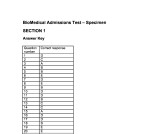|
Download [PDF] Specimen BMAT S3 Writing Task Question Answered 2 BioMedical Admissions Test
|
File Information
| Filename: | [PDF] Specimen BMAT S3 Writing Task Question Answered 2 BioMedical Admissions Test.pdf |
| Filesize: | 94.55 KB |
| Uploaded: | 09/08/2021 00:22:21 |
| Keywords: | |
| Description: | Download file or read online BMAT specimen paper writing task 4500/13 question answered 2 section 3 - BioMedical Admissions Test |
| Downloads: | 0 |
File Preview
Download Urls
Short Page Link
https://www.edufilestorage.com/3bf
Full Page Link
https://www.edufilestorage.com/3bf/PDF_Specimen_BMAT_S3_Writing_Task_Question_Answered_2_BioMedical_Admissions_Test.pdf
HTML Code
<a href="https://www.edufilestorage.com/3bf/PDF_Specimen_BMAT_S3_Writing_Task_Question_Answered_2_BioMedical_Admissions_Test.pdf" target="_blank" title="Download from eduFileStorage.com"><img src="https://www.edufilestorage.com/cache/plugins/filepreviewer/2229/pdf/150x190_middle_46f4e7862b1eb5bd4935adbbba5d79e8.jpg"/></a>
Forum Code
[url=https://www.edufilestorage.com/3bf/PDF_Specimen_BMAT_S3_Writing_Task_Question_Answered_2_BioMedical_Admissions_Test.pdf][img]https://www.edufilestorage.com/cache/plugins/filepreviewer/2229/pdf/150x190_middle_46f4e7862b1eb5bd4935adbbba5d79e8.jpg[/img][/url]
Download file
[PDF] Specimen BMAT S3 Writing Task Question Answered 2 BioMedical Admissions Test [PDF]
[PDF] Specimen BMAT S3 Writing Task Question Answered 2 BioMedical Admissions Test [PDF]
[PDF] Specimen BMAT S3 Writing Task Question Answered 2 BioMedical Admissions Test.pdf | Plain Text
Question answered: 2 Belief, according to Plato, is the justif ied truth that we accept. Thus, if we believe in something, in this case t he natural sciences or laws, we accept these laws as justified truth. Hence, Karl Popper puts forward a theory, whereby he states that if a hypothesis in natural law cannot be falsified or proven wrong, then it is accepted as the justified truth that a scientist can believe in. This theory of falsificati onism, at least for Karl Popper, ensures that there is a degree of certai nty in understanding and comprehending natural laws. The laws are said to be certain because it has not been possible to refute or dispute them. Hence, it is said to be safe to accept these laws as truth. However, Popper’s theory cannot be ap plied in certain circumstances or conditions to fully understand and accept natural laws. This is because not all hypotheses in science (which ma y be true) can be refuted through experiment. For instance, in the field of astronomy, scientists cannot travel to space and actually observe how the so lar system and our galaxy respond to experimental manipulation. It is impo ssible! With reference to Popper’s theory, most of the scient ific laws on astronomy postulated by scientists cannot be accepted as our just ified truth. Does that mean our Earth is not a sphere just because no one has actually seen or observed it? Or, the claim made by Copernicus that the planets’ orbitals are an ellipse and not perfectly circular cannot be accepted? This simp ly proves that there must be other scientific methods which can be used to accept and understand scientific laws. This brings my argument to the basic scientific method called ‘naïve inductivism’ which is applied by many sci entists to explain natural laws. In this basic scientific method, careful observations are made using our senses, the visual, olfactory, auditory, taste and touch that is. From careful and detailed observations, data is collected and a generalization is made from repeated experiments. These generaliz ations are made based on inductive reasoning. Hence, a theor y is formulated and is then used to explain and make future predictions of natura l laws using deductive reasoning. Nevertheless, I must ack nowledge that this method has its own weaknesses and flaws. For instance, can our senses be fully trusted? Different scientists have different ways of interpreting those senses. Some may even choose to accept which senses they believe the most. Hence, defeating the purpose of an independent truth. In conclusion, both these types of scient ific methods can be used to explain natural laws, depending on the purpose and conditions that go with it.















